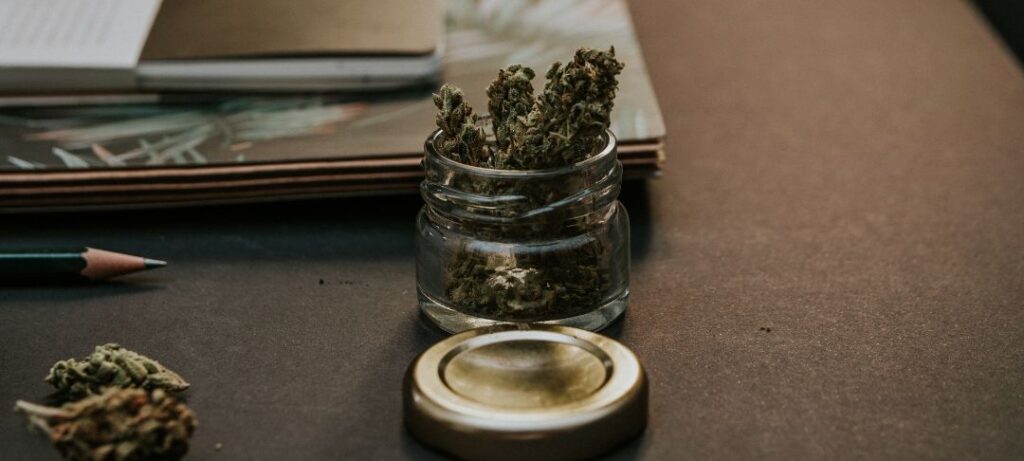Drugs have been a persistent issue for law enforcement and airport security for decades. With the rise of international travel and the ease of transporting drugs across borders, the need for effective drug detection has become even more critical. While most travelers have a general understanding of the dangers associated with carrying drugs, they may be unaware of the consequences that could arise if drugs are found in their checked luggage. In this blog post, we will delve into the world of checked luggage and drugs, exploring the importance of checking luggage for drugs, the consequences of having drugs in checked luggage, and how drugs are found in checked luggage. Whether you’re a seasoned traveler or just starting to plan your first trip, this comprehensive guide will provide you with the knowledge and resources you need to stay informed and prepared.
Importance of Checking Luggage for Drugs
Checking luggage for drugs is critical to maintaining the safety and security of both travelers and the general public. One of the primary reasons for checking luggage is to prevent the trafficking of drugs. Trafficking is the illegal trade of drugs and is a significant problem worldwide. It contributes to the rise of drug-related crime, the spread of addiction, and the deterioration of communities. The presence of drugs in checked luggage can have devastating effects on the individuals involved and the communities they come into contact with, making the prevention of drug trafficking an important priority for law enforcement and airport security.
In addition to preventing drug trafficking, checking luggage for drugs also serves to protect public safety. The presence of drugs in checked luggage can pose a threat to the public, as the drugs can be used to harm others or to fund illegal activities. Furthermore, drug trafficking can lead to the spread of addiction, which can have far-reaching impacts on society. By checking luggage for drugs, airport security is able to intercept drugs before they can be used for harmful purposes, thus helping to ensure the safety of travelers and the public at large.
Finally, checking luggage for drugs is essential for maintaining airport security. Airports are high-traffic areas where large numbers of people converge, making them prime targets for drug trafficking and other illegal activities. By checking luggage for drugs, airport security is able to identify and intercept illegal drugs before they can be used to cause harm, thus maintaining the safety and security of the airport and its passengers.
The Consequences of Having Drugs in Checked Luggage
The consequences of having drugs in checked luggage can be severe and long-lasting. If drugs are found in checked luggage, the individual may face criminal charges and legal penalties. In many countries, the possession and trafficking of drugs is illegal and can result in imprisonment, fines, and other penalties. The severity of the penalties will depend on the type and amount of drugs found, as well as the laws and regulations of the country in which they were found.
In addition to facing legal penalties, individuals who have drugs found in their checked luggage may also face confiscation of the drugs and any related items. This can result in the loss of valuable items, such as expensive jewelry or electronics, as well as the drugs themselves. Furthermore, the individual’s travel plans may be impacted, as they may be required to remain in the country where the drugs were found until their legal case is resolved.
The consequences of having drugs in checked luggage can also have far-reaching impacts on the individual’s future opportunities. A drug-related conviction can result in a criminal record, which can make it difficult to obtain employment or travel visas in the future. Additionally, the stigma associated with drug-related convictions can make it difficult for individuals to reintegrate into their communities and lead a normal life after serving their sentence.
How Drugs are Found in Checked Luggage

Drugs can be found in checked luggage through a variety of methods, including X-ray machines, physical inspections, and sniffer dogs. X-ray machines are commonly used to screen checked luggage for drugs and other prohibited items. The machines use high-energy electromagnetic waves to create images of the contents of the luggage, allowing security personnel to identify any suspicious items.
Physical inspections are also a common method for finding drugs in checked luggage. During a physical inspection, security personnel will open the luggage and examine its contents, looking for any signs of drugs or other prohibited items. Physical inspections are usually conducted when X-ray machines indicate the presence of suspicious items, or when the security personnel has reason to believe that drugs may be present in the luggage.
Sniffer dogs are trained to detect the odor of drugs and other prohibited items. They are often used in conjunction with X-ray machines and physical inspections to provide a more comprehensive screening of checked luggage. Sniffer dogs are highly effective at detecting drugs and are an important tool in the fight against drug trafficking.
The Roles of Airlines, Customs, and Law Enforcement
Airlines, customs, and law enforcement agencies play key roles in checking luggage for drugs and preventing drug trafficking. Airlines are responsible for ensuring the security of their passengers and their cargo and are typically required by law to comply with government regulations regarding the screening of checked luggage. They may use X-ray machines, physical inspections, and sniffer dogs to screen luggage for drugs and other prohibited items, and are required to report any suspicious items to the appropriate authorities.
Customs agencies play a crucial role in checking luggage for drugs at international airports. They are responsible for enforcing the laws and regulations of their respective countries and are tasked with preventing the illegal import and export of drugs and other prohibited items. Customs agencies use X-ray machines, physical inspections, and sniffer dogs to screen checked luggage, and may detain travelers and seize drugs and other prohibited items.
Law enforcement agencies, including the police and border protection agencies, are responsible for enforcing the laws and regulations related to drugs and other prohibited items. They may assist airlines, customs agencies, and other security personnel in checking luggage for drugs, and may arrest and prosecute individuals who are found to be in possession of drugs. Law enforcement agencies also work to disrupt drug trafficking networks and prevent the illegal trade of drugs.
The Differences between Domestic and International Flights
The screening process for checked luggage can vary depending on whether a flight is domestic or international. Domestic flights typically have fewer security measures in place, as the focus is often on preventing the transportation of drugs within a country. Domestic flights may use X-ray machines and physical inspections to screen checked luggage, but may not have the same level of scrutiny as international flights.
International flights, on the other hand, are subject to greater security measures to prevent the illegal import and export of drugs and other prohibited items. International flights typically have a more comprehensive screening process, including X-ray machines, physical inspections, and sniffer dogs. Customs agencies are also involved in the screening process for international flights and may detain travelers and seize drugs and other prohibited items.
Common Types of Drugs Found in Checked Luggage
A variety of drugs are commonly found in checked luggage, including cocaine, marijuana, methamphetamine, and heroin. Cocaine is one of the most commonly found drugs in checked luggage, due to its high value and the relative ease of smuggling it in small quantities. Marijuana is also commonly found, often in the form of dried leaves or processed products, such as edibles or concentrates.
Methamphetamine is another commonly found drug, often in the form of crystal or powder. Methamphetamine is highly addictive and can have a devastating impact on individuals and communities. Heroin is also a common drug found in checked luggage, often in the form of powder or tar. Heroin is highly addictive and can have life-threatening consequences, including overdose and death.
In conclusion, drugs can be found in checked luggage through a variety of methods, including X-ray machines, physical inspections, and sniffer dogs. Airlines, customs, and law enforcement agencies play key roles in preventing drug trafficking and ensuring the safety and security of travelers and the general public. The screening process for a checked luggage can vary depending on whether a flight is domestic or international, with international flights typically subject to greater security measures. A variety of drugs are commonly found in checked luggage, including cocaine, marijuana, methamphetamine, and heroin.
Conclusion
In conclusion, checking luggage for drugs is an essential component of airport security. By preventing the trafficking of drugs and protecting public safety, airport security helps to maintain the safety and security of travelers and the general public. However, having drugs in checked luggage can result in severe consequences, including legal penalties, confiscation of items, and long-term impacts on future opportunities. To avoid these consequences, it is important for travelers to be aware of the risks associated with carrying drugs in their checked luggage and to comply with airport security measures. By doing so, travelers can help to ensure a safe and secure travel experience for all.
